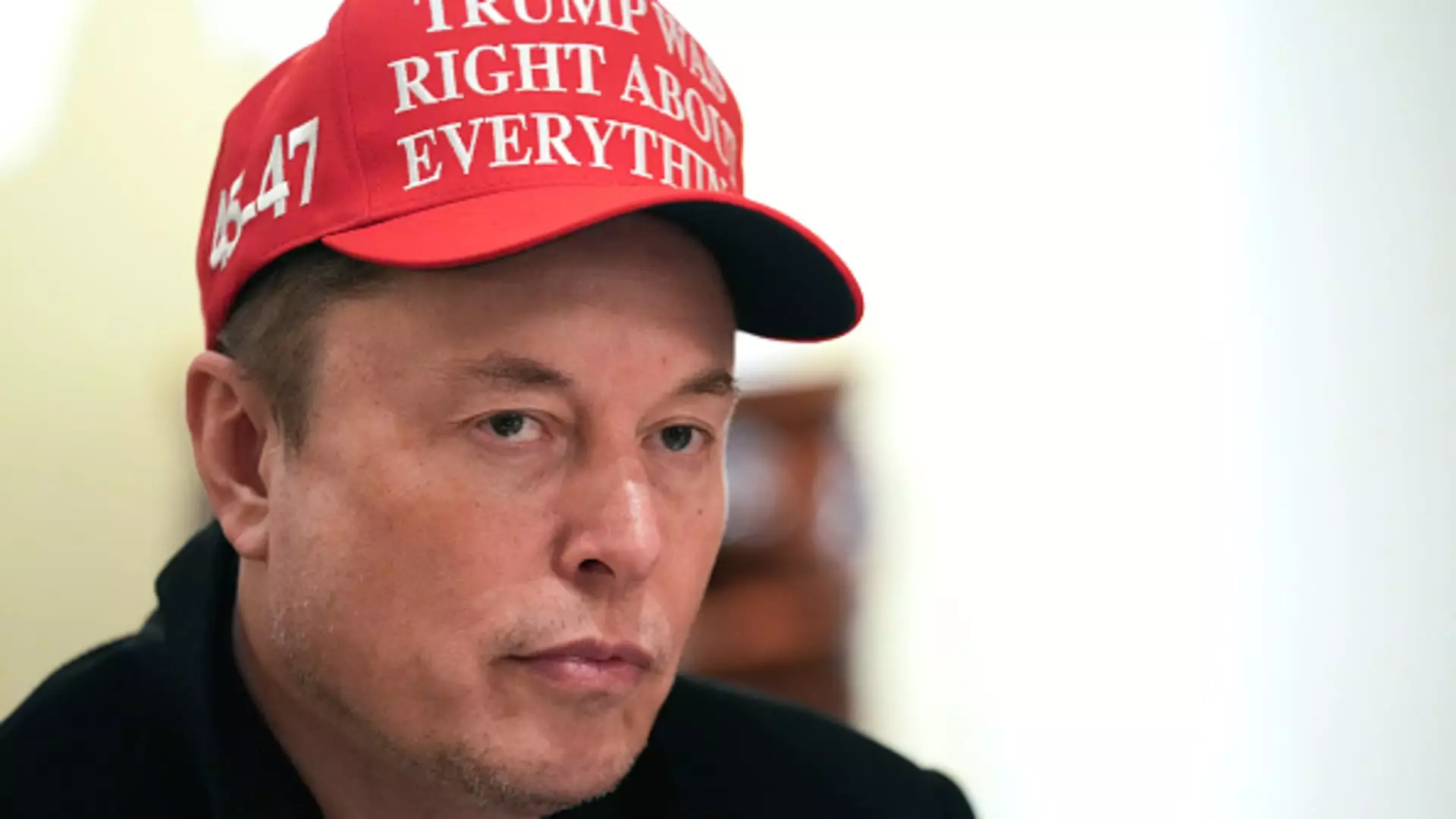Tesla’s performance on the stock market has been turbulent, with shares recently dropping nearly 6% ahead of their first-quarter earnings report. Closing at $227.50, the stock remains perilously close to its yearly low, having plummeted 44% since the start of the year. Investors are understandably jittery, as this decline marks the twelfth occurrence in 2023 where Tesla shares have dipped by 5% or more in a single trading day. Such volatility raises the stakes for stakeholders who count on Tesla not only as an innovator in the electric vehicle industry but also as a symbols of forward-thinking technology.
The primary concerns plaguing Tesla extend beyond market numbers. Analysts are increasingly vocal about “ongoing brand erosion,” a phrase that echoes through the financial press more frequently than ever. Musk’s extracurricular activities—most notably his association with controversial political movements—have introduced doubts about Tesla’s identity in the market, as consumers often infuse their values and beliefs into their purchasing decisions. With an average consumer sentiment taking a downturn, it’s challenging to see the road ahead shining brightly.
Musk’s Multifaceted Distraction
Elon Musk’s frequent distractions have come under scrutiny. His role in political activism, particularly his support for the Trump administration, is drawing critical attention. Musk has not only played a financial role in political campaigns but also proposed sweeping cuts within the federal workforce, drawing ire and backlash from concerned citizens both in the U.S. and abroad. The optics of such actions have presented Tesla with challenges that extend beyond the boardroom.
Investors voiced their frustrations ahead of the earnings call, with more than 300 questions directed at Tesla’s self-driving technology, alongside serious inquiries about the implications of Musk’s political maneuvers. One pointed query asking about measures to mitigate brand damage illustrates a growing concern: How is Tesla’s leadership addressing these external pressures that could potentially tarnish its long-standing reputation for innovation and quality?
Slipping Demand and Sales Forecasts
Tesla’s recent reports of declining vehicle deliveries—336,681 in the first quarter, a 13% drop from the same period last year—represent a fundamental challenge. Analysts predict a revenue report of approximately $21.24 billion, which would indicate a slight decline compared to the previous year. The anticipated earnings per share of 40 cents might not reassure investors who are looking for the momentum that carried Tesla’s stock to historic heights.
Compounding these issues is the looming uncertainty surrounding potential tariffs imposed by the Trump administration, which analysts predict could chisel away at Tesla’s margins. The concerning trend of increased nationalism among Chinese consumers could exacerbate issues in a crucial market for Tesla. As competition within China intensifies, domestic brands could capture consumer attention, leading to pressure on Tesla to export more vehicles from its local factories—a cycle that could influence pricing and profitability.
Consumer Sentiment: A Shift in Perspective
Market research highlights a concerning shift in consumer sentiment toward Tesla. A study revealed only 27% of survey respondents considered purchasing a Tesla in March, a significant dip from 46% in early 2022. Such statistics illustrate the need for Tesla to recalibrate its brand strategy to regain consumer trust and desire. The harsh reality is that a diminished brand appeal can translate to long-term consequences on sales and market positioning.
This sentiment shift has not escaped the attention of seasoned analysts like Dan Ives from Wedbush Securities, who yearns for a “turnaround vision” from Musk during the upcoming earnings call. His assertion that Tesla has morphed into a political symbol linked to controversial figures embodies a sense of urgency for a change in narrative. Analysts are speculating that without a solid plan for the future, Tesla risks incurring what Ives describes as “permanent demand destruction” because of the reputational damage wrought by Musk’s political entanglements.
Looking Ahead: Navigating Complexity
Amidst the haze of uncertainty surrounding its stock performance and brand perception, one fundamental query persists: How can Tesla regain its innovative edge and consumer goodwill? Depending on Musk’s focus in the coming financial disclosures—particularly regarding its Full Self-Driving (FSD) initiative—Tesla stares at a pivotal moment that could alter its trajectory.
Investment firms like Barclays have maintained skepticism by downgrading their targets based on “weak fundamentals.” However, there is potential for a reversal if Musk can establish a more grounded approach to his leadership role at Tesla. The upcoming days could determine whether stakeholders will embrace the old Tesla that captivated the market or if they will further distance themselves as the complexities of Musk’s multifaceted crusade linger. The stakes have never been higher, and the road ahead will demand a level of resilience and adaptability that Tesla has yet to fully exhibit.

